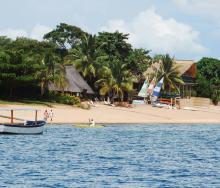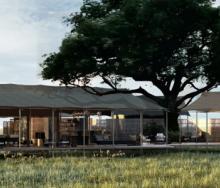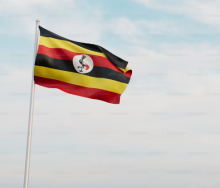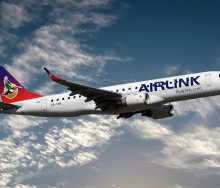East Africa has been grabbing its share of the tourism spotlight of late, particularly Rwanda, about which there is much expectation. Michelle Colman reports.
Current tourism development in Rwanda is vibrant and spans all sectors. In recent months, Tourism Update has reported on increasing air access, hospitality growth, and a concerted push for MICE business.
Recent projects have included commencement of a new airport to handle 1.8m passengers annually, the acquisition of new aircraft and the expansion of air networks. The opening of an international convention centre in Kigali in 2016 along with five-star properties in the capital have attracted international conventions.
While the mountain gorillas of the Virunga Massif, protected within Volcanoes National Park, are the best-known tourism experience in the country, the Rwanda Development Board (RDB) has identified other locations for tourism development, such as the Kivu Belt to the east, Twin Lakes close to Volcanoes National Park, the area around Akagera National Park and Lake Muhazi, northwest of Kigali.
In Akagera, South Africa’s Mantis Collection has been contracted to manage and market the Akagera Game Lodge as one of its African collection of hotels. Other South African high-end operators to announce projects are One&Only, set to open resorts in the Nyungwe National Park and the Virunga Volcano range; and Singita, which will open Kwitonda Lodge in 2019 on the edge of the Volcanoes National Park. Wilderness Safaris recently opened Bisate Lodge in the same location and has plans for a second lodge in Akagera National Park, but details are not yet available.
Cheers greeted a recent announcement that, as of this year, all travellers to Rwanda, irrespective of nationality, will receive 30-day visas on arrival, no prior application needed. The move, it is said, was in response to the African Union’s encouragement of freeing up movement across the continent.
However, in May the RDB’s doubling of the cost of permits to see its mountain gorillas was interpreted by some as flying in the face of this liberalisation. But defenders of the move saw it as a signal of the country’s low-impact, high-yield conservation strategy.
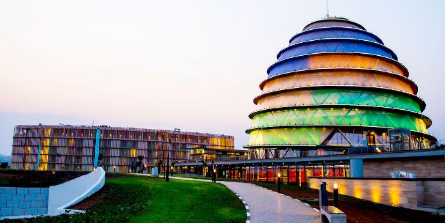
Stability benefits tourism
Sense of Africa operates in Rwanda, and its East African management describe the destination as commercially and politically stable, appealing to a mid-high clientele. MD, Martin Cook, and Deputy MD, Michael Njogu, believe the gorilla permit increases are off-set by the increased flight connections, visas on arrival and significant infrastructure investments. For the moment, Rwanda remains a specialist destination for Sense of Africa, but the country “would appear to be strategically nurturing itself to become a much sought-after one in time to come,” they say.
Sean Kritzinger, Co-owner and MD of Giltedge, views the destination with equal optimism, and notes increased demand for Rwanda as a luxury destination. The growth in five-star game lodges in the next two years, he says, will allow clients the extraordinary experience of seeing gorillas in the wild without losing out on any luxuries.
“Most of our clients visit Rwanda to see the gorillas. Kigali International Airport is the main gateway to the country and then, depending on what accommodation they choose, it’s three hours by road or 30 minutes by helicopter to the [Volcanoes National] Park headquarters.
“We haven’t seen any new routes developing – but there could be in the next two years, as tourism is growing in Rwanda,” says Kritzinger.
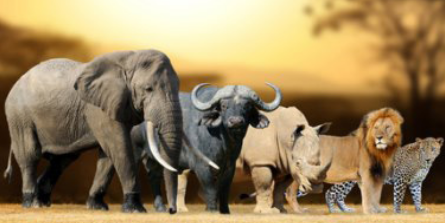
View of a Rwandan tour operator
Kigali-based Jacqui Sebageni, MD of the tour operation Thousand Hills Africa, says Rwanda woos luxury travellers in many ways.
She commends its progressive policies and attention to environmental issues, such as banning the use of plastic bags; car-free days and car-free areas in Kigali; community service days on the last Saturday of each month and the promotion of gender equality.
Rwanda, she points out, has been voted the safest country in Africa and ninth-safest worldwide. Infrastructure used by tourists is good, the country is clean, the people friendly and the country stunningly beautiful.
“We like to say that Rwanda has the Big 7 – the Big 5 in Akagera, plus chimpanzees in the south-west and gorillas in the north-west,” says Sebageni. “Kigali lies in the centre of the country and getting out to the different attractions is easy with short driving times and good roads.” By comparison, gorilla tracking in Uganda will require an eight-hour drive or a flight, she says, and roads in either Uganda and Congo, the third country for mountain gorilla viewing, compare unfavourably with those in Rwanda.
“We also have accommodations for the discerning traveller – Bisate Lodge in the northwest and Nyungwe House southwest. In Kigali we have Kigali Serena, Marriott and Radisson Blu with more to come in the near future in different parts of Rwanda.”
Sebageni says the increased cost of gorilla permits has yet to result in a decline in visitor numbers, with the 2017 high season her busiest since she commenced tours in 2004. This year looks promising too.
“With the increase in the price of permits, Rwanda is making it very clear what the country’s strategy is – a focus on conservation that can really only be achieved through low volumes and high yields. This is will raise the bar in service delivery and attract like-minded investment. This can only be good for the protection of gorillas.”
This story has been updated since it was published.





